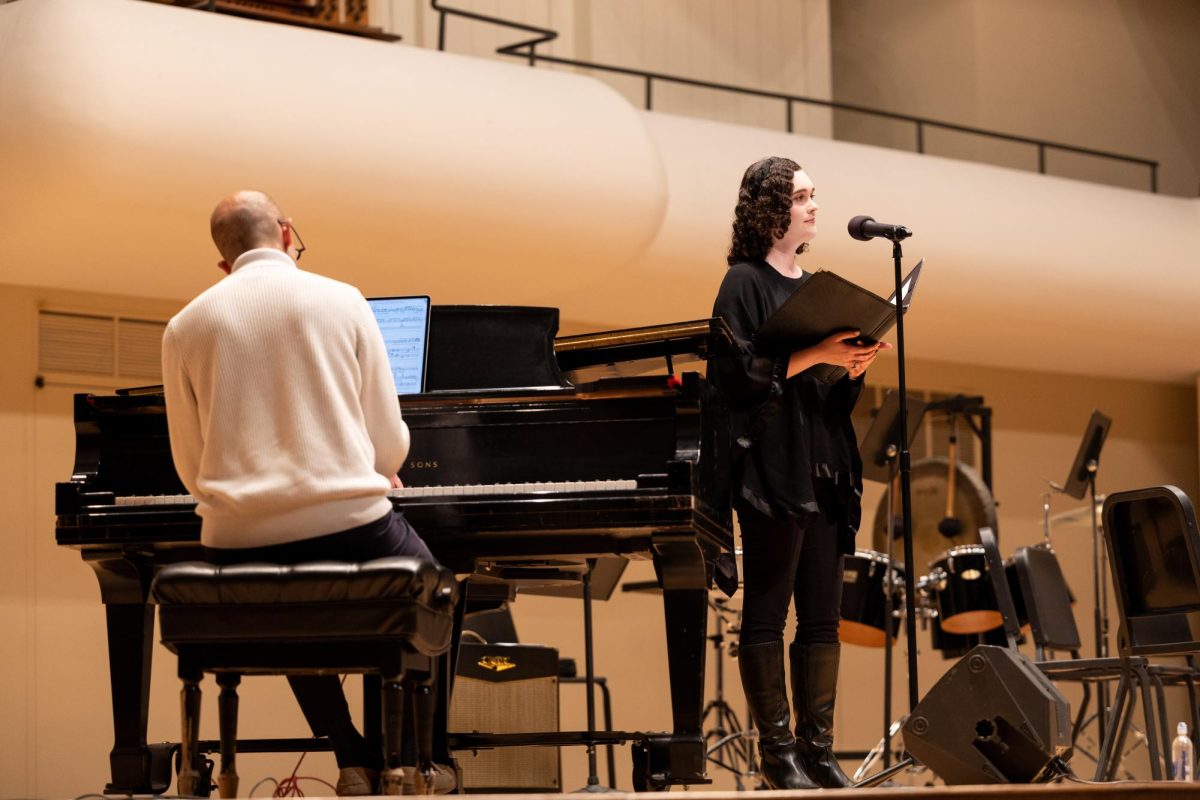College, for many students, means freedom. Freedom from parental supervision, freedom from curfews, freedom to eat Chinese food, pizza, a burger and fries all in one meal – the list goes on and on. Perhaps one of the most distinct changes from high school, though, is the freedom to choose one’s own schedule.
In an environment where students have complete control over their class schedules, many choose to forgo Friday classes in favor of starting their weekends a day early.
Teasia Thomas, a junior majoring in political science, said she avoids Friday classes whenever she can, trying to only register for these classes if attendance isn’t mandatory.
“Most professors understand the importance of the weekend to a college student,” Thomas said. “Whether they like it or not, their class attendance will decrease on Fridays.”
Thomas specifically designs her schedule to exclude Friday classes, often registering early or taking online classes to keep her Fridays open.
“The weekend has to include Friday when you’re in college to really enjoy it,” Thomas said. “With so many students working part-time on the weekends, the weekend will not exist if Friday is not completely devoted to relaxation.”
During prime time, from 9 a.m. to 2 p.m., the University offers about 25 percent fewer course sections Fridays than it does Mondays or Wednesdays, said University Provost Joe Benson. For example, Mondays and Wednesdays at noon, about 180 of the school’s 389 available classrooms are in use. At the same time Fridays, only 128 classrooms are used.
After 2 p.m., the difference becomes even more drastic. Monday through Thursday at 3 p.m., classes occupy anywhere from 215 to 302 classrooms. On Fridays at 3 p.m., that number drops to just 42.
One of those 42 rooms is occupied by Rosianna Gray, an assistant professor in the department of biological sciences. Gray teaches two sections of BSC 114, Principles of Biology I, on Mondays, Wednesdays and Fridays, one at 9 a.m. and the other at 3 p.m.
While her 9 a.m. class usually has the same attendance levels on all three days, Gray said about 25 to 30 percent of students in her 3 p.m. class are usually absent Fridays.
“It’s enough that you notice that it’s not the full amount of students,” Gray said. “I just think on a Friday afternoon, you’ve [already] had lunch, [and] you may be going out of town. People are more prone to miss that class than they would be the 9 a.m. class.”
To encourage students to attend class, Gray takes attendance with clicker quizzes in each class. Each quiz is worth a point, and together the quizzes account for about 13 to 17 percent of students’ final grades.
Gray said missing too many Friday classes can negatively impact students’ understanding of the class material.
“Say, for instance, you start a new concept on Friday, and you had a large group of people who missed [class],” Gray said. “When they come back on Monday, I’ve noticed my office hours are pretty full because they’re coming in [saying], ‘Dr. Gray, I missed Friday. Is there any way you can catch me up to speed on this concept?’”
For students without Friday classes, the weekend begins Thursday night, but some students like to start their weekends even earlier. The flexibility of choosing one’s own schedule, the freedom of being away from home and the prevalence of weekday bar specials all contribute to a culture in which almost any day can be a weekend.
(See also “ABC, local law authorities, UA work to enforce local alcohol laws“)
At Gallette’s, the weekend starts Wednesday, or, as the owners have dubbed it, “Wine Wednesday.”
“You start to see people go out as it gets later in the week, but it seems like Wednesday kinda jumpstarts the weekend for us,” Gallette’s co-owner Jeff Sirkin said. “We stay busy through Wednesday, Thursday, Friday and Saturday, but Wednesday is definitely one of the bigger nights.”
Wine Wednesdays began about three years ago after Gallette’s had extra wine inventory left over from an event. The owners decided to sell bottles of wine for $5 each, and after the night’s success, they turned the deal into a weekly special.
“[Wine Wednesday] has continued to grow,” Sirkin said. “We used to get a good crowd downstairs and not have to open the back, but now, it’s pretty much run like a game day. When we first started doing it, it was busy, but it’s grown into its own entity to where we run the whole bar, front and back.”
(See also “New taps for crafts: Brunos offers new, take-home draft brews for growing craft beer trends“)
Sirkin said usually about 90 percent of the Wine Wednesday crowd consists of college students. He said these weekday bar specials target college students with limited funds.
“Obviously we want people to go out every night, but we understand that’s not gonna happen,” Sirkin said. “Some people have obligations with school and everything. We just mainly do it to try to get people in here. College kids, some of them are on a budget, so we’re just trying to give them something to make them want to come in here.”
College students have a great amount of freedom when registering for classes, making it possible for those who enjoy going out to design a class schedule facilitating that lifestyle. Gray said this freedom and flexibility, though, combined with the “Thursday is the new Friday” mentality poorly prepares students for life after graduation.
“I think that by the time you get to be a senior, your work ethic should be the same regardless of when your classes are,” Gray said. “I definitely don’t apologize for having Friday classes or having consequences if you don’t come, because that’s just getting you prepared for the real world.”
Not all students feel this way. Thomas said she doesn’t believe taking Fridays off in college will affect her ability to adjust to a post-graduation nine-to-five job.
“Real world work is Monday through Friday, and I can’t change that,” Thomas said. “I avoid Friday classes while I’m in college because I get to make my own schedule, so why not make it comfortable?”
(See also “Green Bar event coordinator to leave for Birmingham“)









